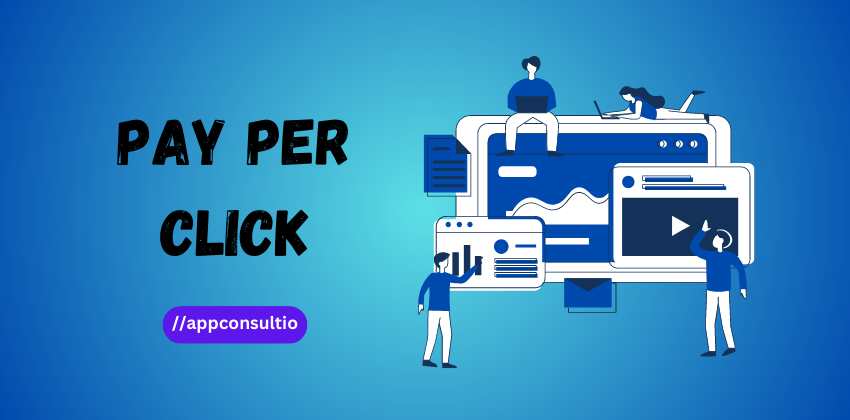
PPC, which stands for pay-per-click, is a way of advertising on the internet. Imagine you have an ad for your business and want people to see it and visit your website. With PPC, you only pay when someone clicks on your ad. It’s like paying only for people interested in what you’re offering. One of the most common types of PPC is when you put your ad on a search engine like Google. When someone searches for something related to your business, your ad might appear at the top of the search results. So, if you have a shop that sells, let’s say, fabulous shoes, your ad could show up when someone searches for “awesome sneakers.”
One unique thing about PPC is that it’s like getting two benefits in one. You get people visiting your website because of the ad and people who come to your site through regular search results. So, it’s like boosting your website visitors in two ways simultaneously. An example of how PPC can work wonders is with Google Shopping. If you’re good at managing Google Shopping, your ad can show up with images and details of the products you sell, making people more likely to click and buy from you.
PPC advertising is great for small businesses because you control your spending. You can choose how much you want to spend on each keyword (those are the words people type to find stuff online). You can make sure you’re not spending too much. This way, you’re more likely to get the attention of people interested in buying your stuff. It’s like ensuring your money goes to the right people who might become your customers.
Advantages of PPC -
1. Pay for action - With pay-per-click (PPC), you only pay when people click on your ad and visit your website. This differs from other ads, where you pay to show the ad, whether or not anyone clicks. So, when you use PPC, you ensure your money is spent on actual results. You’re not just hoping that people will notice your ad – you’re only paying when they take action and click on it. This direct connection between what you spend and the visits you get makes PPC an intelligent choice for businesses.
2. Ad Performance - With pay-per-click (PPC) advertising, you learn a lot about how well your ad is doing. The platforms where you put up your PPC ads give you all the details about what’s happening with your ad. This includes stuff like how many times your ad was shown (impressions), how many times people clicked on it (clicks), and even how many of those people did what you wanted them to do, like buying something or signing up (conversions). It’s like having a report card for your ad. You can see exactly what’s working and what’s not. All this information helps you improve your ad and get more out of your advertising money.
3. Ads with Dynamic PPC Optimization - With pay-per-click (PPC) advertising, you have a powerful tool to improve your ads. The data you gather helps you quickly determine whether an ad is doing well. And here’s the cool part: you can make changes immediately to improve it. It’s like steering a ship in the right direction as soon as you notice it veering off course. Similarly, with PPC, you can create different ad versions, like changing the words or images, and see which gets the most attention (clicks).
This is like a secret weapon for making your ads even more awesome. Instead of hoping one ad will work perfectly, you try out a few variations to see which one is the superstar. Once you find the winning ad, you focus on that style, and it’s almost like having a magic recipe for success.
4. Right Audience - With pay-per-click (PPC) advertising, you can be precise about who sees your ads. When the right people see your ad, they’re likelier to click on it. It’s like showing your awesome soccer ball to someone who loves playing soccer – they’re excited to check it out! And guess what? The more clicks you get, the less you pay for each one. So, with PPC, you’re not just putting your ad out there for anyone to see. You’re being smart and showing it to the people who are most likely to be interested. This way, you’re not wasting money on clicks from people who don’t care about what you offer. It’s like inviting the perfect guests to your ad party and maximizing your budget.
Conclusion - In digital advertising, pay-per-click (PPC) stands as a dynamic strategy. With PPC, you only pay when potential customers click on your ad, ensuring your investment translates directly into engagement. This method empowers businesses to monitor their ad’s performance meticulously, adjusting in real-time for optimal results. By crafting different ad versions and targeting specific audiences, PPC is like having a secret weapon for success. It’s like inviting those who genuinely resonate with your offerings to join your ad party, ensuring both budget efficiency and impactful outcomes.